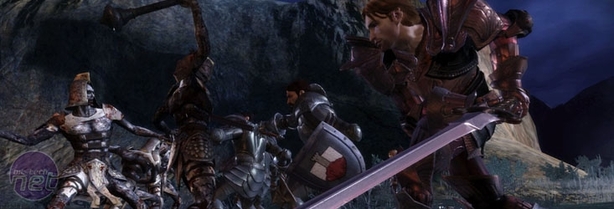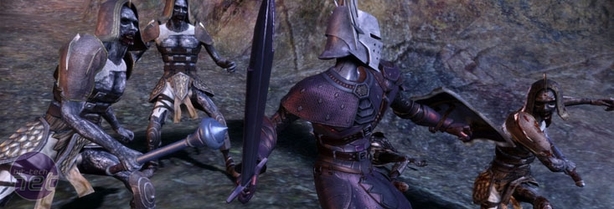Dragon Age Interview: Of Betrayal & Blight
May 16, 2009 | 09:46
Companies: #bioware #electronic-arts

Dragon Age: Origins Interview – Betrayal
bit-tech: Betrayal then – the fact that we can’t trust everyone in our group, that’s the approval system at work?Mike Laidlaw: Yeah. There are different levels of approval and characters can agree and disagree with the choices you make, as well as with each other. It’s really important that...well, no. It’s not important and it’s not like you should never do something because a follower might disapprove, but what’s really important to me is that the characters react realistically.
Followers have their own personalities and their own goals and that contravening on those can cause them to turn on you. Usually there’s some warning, so it’s not just totally out of the blue, but it’s really neat to see a character that is believable stand up for what they believe to the extent that they might actually go after you in response.
BT: How different is the approval system from alignment in D&D, specifically in Baldur’s Gate 2? I can’t remember the specifics, but...
ML: You mean the good and evil, chaos and the law ratings?
BT: Yeah, but also like Minsc wouldn’t come with you if you allied yourself with Bodhi and so on.
ML: Um, well, in terms of the actual mechanic and the fact that it’s a visual representation with numbers that change and so on, the ideas are fairly similar. The intent though is what, I think, is really different.
In one case we’re measuring against an almost arbitrary scale and that was the whole Dungeons and Dragons thing, right? It was deterministic. There were things that were good and there were things that were bad and never the two shall meet. Dragon Age: Origins is what we call a dark fantasy though, so it isn’t really quite so clear. The line is blurred.
To me, the most compelling villains are always the ones where I look at them and totally get why they are doing what they do. I may think they are still a dick, but I still understand that. And that’s the difference between the approval and alignment system. Are there things that are absolutely evil? There are a few obvious ones, but most of the time you’re probably left scratching your head. One thing might be efficient in helping you save the world, but you might feel unsure about doing it.
BT: Why did you choose to go and create an entirely different world though, rather than using an established one like in D&D?
ML: Because we love the work! This is the third new IP that we’ve created and that’s important to note. We started with Jade Empire and then moved to Mass Effect and this one kind of rounds out the package. We did kung-fu, space and sci-fi...now let’s do fantasy?
BT: Was that part of a deliberate attempt to experiment with new settings and try and find the one that resonated most with the audience?
ML: Kind of, yeah. For Dragon Age it was always, always part of the plan to return home to fantasy. Part of the joke about calling it Origins is that it’s also where BioWare started. Sure, we made Shattered Steel – but the game everyone really remembers is Baldur’s Gate.
So, we knew we’d return to fantasy because there’s so many guys who just love the old-school fantasy stuff. All the Tolkien stuff, as well as more modern works like George R.R Martin’s Song of Ice and Fire, which is a pretty good example of the unswerving dedication we liked. If this character needs to die – he dies!

MSI MPG Velox 100R Chassis Review
October 14 2021 | 15:04











Want to comment? Please log in.